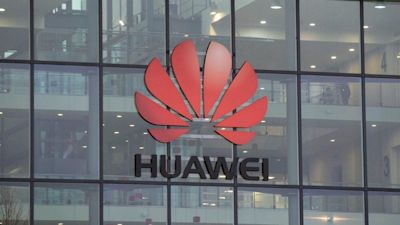Johnson ousts Huawei, but slower than his Tory critics wanted

It is a big deal that the Chinese telecoms giant Huawei is being totally excluded from the UK's new fast 5G mobile network, and is redolent of a de facto cold war between the West and China.
But Johnson has taken a more gradualist approach to the exclusion of Huawei than his Tory critics wanted and UK telecoms companies feared.
BT and Vodafone got more time than they expected to move away from Huawei as a 5G and broadband supplier. The Tory MPs who want no involvement of the Chinese company in important communications infrastructure will feel only partially vindicated; many of them will be disappointed and angry.
The UK telecoms giants had hoped they would have till 2027 to remove all kit from 5G.
That is exactly what they got, along with permission to continue buying from Huawei till December. And they will never have to remove Huawei from superfast broadband, but can purchase from it for up to another couple of years.
What is more, there is no requirement to strip out Huawei from 2G, 3G and 4G.
What BT and Vodafone had expected was a demand to be almost totally free of Huawei within five years - which they viewed as expensive but do-able. What they feared was total removal within three years.
The point for Boris Johnson is that his National Cyber Security Centre views this milder form of Huawei ban as safe enough.
The prime minister has sided with his technocrats, and has told an influential group of Tory MPs - led by David Davis, Iain Duncan Smith and Tom Tugenhat - to go away and log off.
So there will be a row and a parliamentary battle over this.
Why is he risking the row?
One reason is that his most important aide and advisor, Dominic Cummings, holds in contempt most of the arch Tory critics of Huawei.
He would typically take the view that it is rational to take them on in an argument (and the likes of Davis hold Cummings in equal contempt).
The other reason is that banning Huawei brings significant incremental costs to the companies - up to £2bn from the 5G policy alone - and delays to the modernisation of the UK's economically important communications networks.
The full roll out of 5G will now be put back by around two to three years to 2027 or so.
But Johnson thinks he will still meet his election manifesto target of giving every household and business access to full fibre gigabit broadband by 2025.
So it is especially convenient for him that his spooks and security advisers see lower risk for the UK in allowing Huawei a permanent role in fixed broadband, than for 5G.